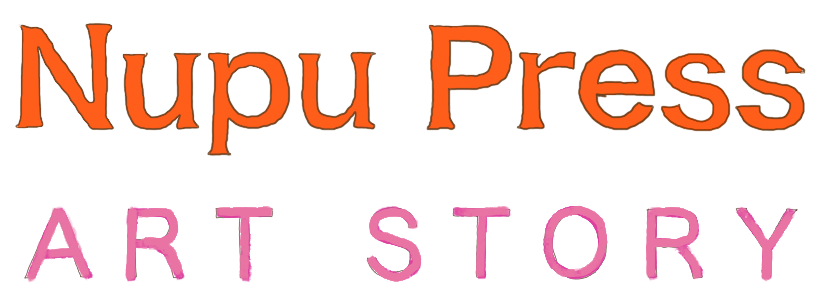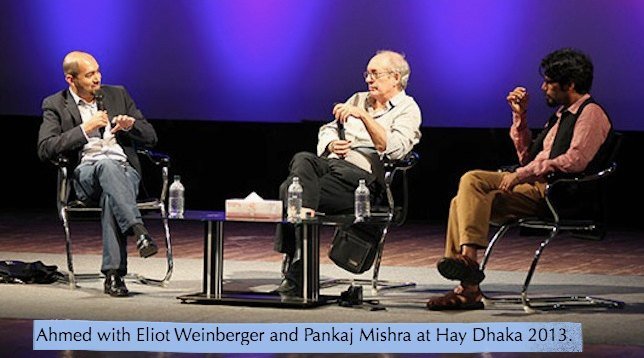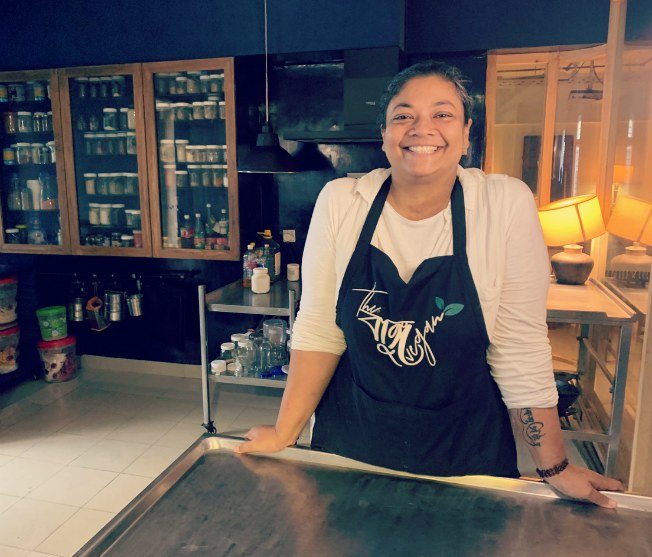Inspire Me: K Anis Ahmed
I chat with author K Anis Ahmed about the creative and practical process of writing his novel, The World in My Hands (Random House India, 2013).
The story is about two friends who choose different sides in a military-backed Emergency that rearranges the country’s social order. Written with skilled assurance, the frictions feel visceral, as social veneers fall away to reveal each person's base nature. The astute cultural observations has me quoting from the book frequently. About our national spirit: “Meek when facing authorities alone, but full of ferocious vengeance when part of a great crowd.” Or how we “would put up with any amount of incompetence or non-delivery, but not affronts to [our] dignity.”
With its noir-ish elements, dark humour and tension brought so close I can see the sweat on the brows, it works beautifully as a page-turning thriller. Its political backdrop grounds the story into something more frighteningly serious. And its tangled relationships show up our all too human frailties.
Once upon a time
Which came first: the title or the content?
With me it's always the title or a first line. In this case it was both title and first line.
Was there an image or a mood that inspired the story?
The first line. And also the atmosphere of pervasive fear felt by those of us who found ourselves on the “wrong” side of 1/11. [11 January 2007, the start of a military-backed caretaker government that ruled Bangladesh for two years.]
How did the idea come to you?
My first novel, which I finished in ’98, was about a nascent democracy which collapses and two brothers who find themselves on opposite sides of a new political divide. I didn't mean to re-write that novel. But themes stayed with me and by the time I wrote this – post 1/11 – reality had conveniently supplied me with the objective corollary.
At which point did you know the fate of the characters? Did it feel inevitable to you or did you play around with it?
Up to two-thirds of the way in, there was always more than one possibility. For me the decisive moment was realising that Natasha would emerge as the ultimate survivor. Once I knew that, all other fates became apparent.
At this point, do you want to have coffee with your characters or poison them?
I'd have coffee with Hissam, but keep him at arm's length. I'd have single malt whisky with Kaiser and tell him not to be so rigid, to leave while he can. I'd have herbal tea with Natasha and give her a hug. What I'd do with Duniya, I can't talk about; I'm married.
Plots, plans and schedules
Did you plot it beforehand? If so, how detailed was it?
Quite detailed. By the time I wrote the third chapter, I had a complete chapter by chapter outline. But not everything played out as I originally anticipated. Changes occurred and accordingly I updated the plot or outline time to time.
Preferred system for planning? Any tools?
I’m not very techie, so the tool was quite simple: grids made on a Word doc. And also lots of handwritten notes – but quite systematically organised in color-coded notebooks.
Being bilingual, did other languages come into play at any point, or was it all done in English?
English all through. But I did picture a lot of the dialogue in Bangla where in real life that exchange would be in the vernacular, and tried to hit the right tone in English.
You have other lives and careers, how did you carve out the space to write this book?
With great will power and discipline. I found ways to make time for three to four good sessions during the week. I also took off on seven to 10-day sabbaticals once a quarter. That's how the first year of writing went.
Then for the final stretch, I actually took three months off from work and stayed with my in-laws in Maryland. I rented a room in the local Holiday Inn to serve as my office. I typed so much in those three months, I got repetitive stress injury and still have to wear a brace when typing. None of this would be possible without my incredibly supportive wife. And also two super supportive brothers who made it possible to take so much time off from work.
The process
Did you find the process of writing from the perspective of each character almost like acting, where you channel that person, as if writing through him/her?
Yes, in fact my first writing teacher, Edmund White, had taught us to think like that: he said writing characters was acting mentally, without the physical concomitant.
Was writing an emotional or an intellectual experience?
Intellectual.
Was there a type of reader you had in mind while reading it?
Yes, people like you: worldly, engaged and with a passion for reading.
How did you cope with distractions?
With great discipline – and ease. I can be fiendishly focused.
How has the discipline of writing shaped the rest of your life?
Really brought into focus what’s important to me and forced me to shed practically all that was superfluous.
What do you know now that you wished you knew when starting your novel?
I should have taken better care of my hand when typing 10-12 hours a day.
Editing
How many drafts?
I was extremely lucky to have two friends – Chris Heiser and Michelle Alumkal – both professional editors, giving me intensive read-backs. The typical chapter went through four to six revisions. First with Chris for structure. Then again with Chris for a check after changes. Then with Michelle for language, but also for getting the right touch with characters and dialogue. Often at some stage, chapters went through a complete re-do for my satisfaction. Finally, to my editor at Random House, Faiza Sultan Khan, who was so precise. She brought about a final touch that was amazing to see, given how intensively the chapters were worked before they reached her.
How dramatically did it change each time?
Quite a bit. When I first began, Banner was the main character. I wanted everything told from the point-of-view of a washed-out American spy! Then I took Kaiser as the main character. What's now chapter six was originally the first chapter. Finally, I settled on Hissam as the leading perspective, but Kaiser and Natasha were both compelling enough that their points-of-view stayed as well.
Was there a time gap between each draft?
Initially there was sometimes a gap of days or weeks. But in the end, things got turned around at times within 24 hours.
Did you create targets for each writing session – word count or hours?
Yes, it was a mix. A typical session of three to four hours I found was most productive. And 500-1,000 words per session seemed like a good target.
At what stage did you feel comfortable talking about it? Sharing the manuscript?
There was a time when I used to be very reticent about works-in-progress. Almost superstitiously so. But with this novel, I felt something opened up. I talked quite freely about it as I went along.
How many darlings did you kill?
Many. Here's an example of a line of dialogue I just could not find a justified place for:
Publishers
Did you have a publisher in place before starting the book? Did they give deadlines?
I did not have a publisher in place when I started. But I was lucky enough to find one quite early on in the process. They set me quite a hard deadline – which was gruelling, but also exhilarating and the driving impetus to do the job quickly.
How did you get the publishing deal before the book was finished?
Thanks to Hay Dhaka, Faiza Sultan Khan of Random House was in town. Tahmima Anam had very generously put in a good word for me. I pitched the book to Faiza and she took it!
Did they hold your hand or slap your wrist?
Meru and Faiza might not agree; but it was mainly slaps on the wrist, but with sweet words.
And finally...
Was there a big takeaway from this experience that will help you for your next book?
Yes, you can write very quickly without loss of quality. Sitting on stuff doesn't automatically make it better; intensive edits do.
You read it here first!
The title and first line from his next novel:
K Anis Ahmed Recommends
Book: The Loser by Thomas Bernhard.
Film: Underground directed by Emir Kusturica.
Games: The Spassky-Fischer World Chess Championship match of 1972.












